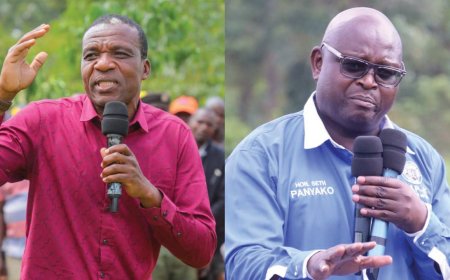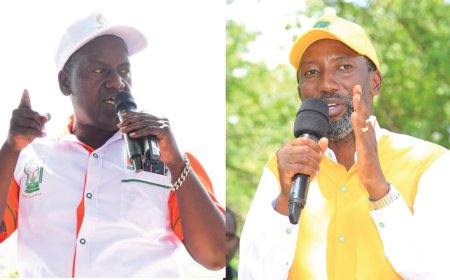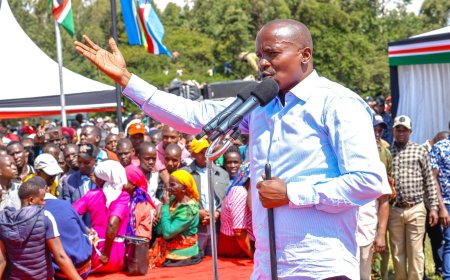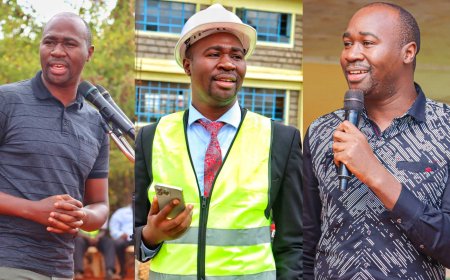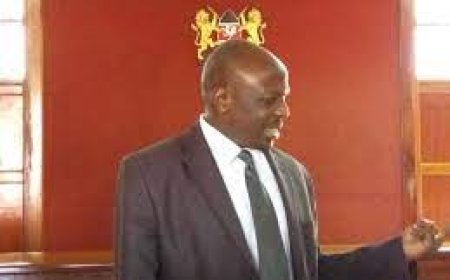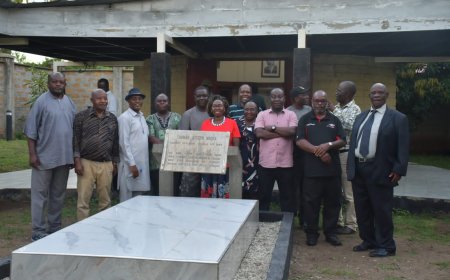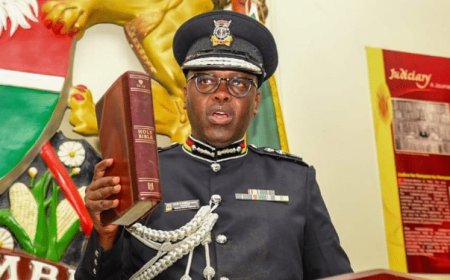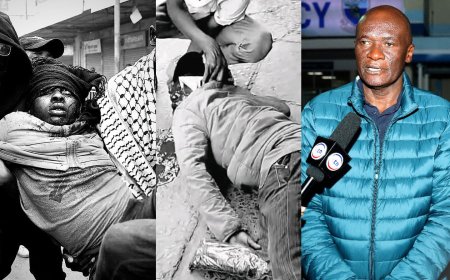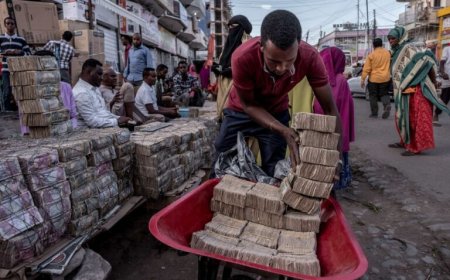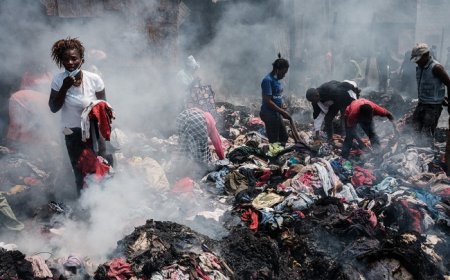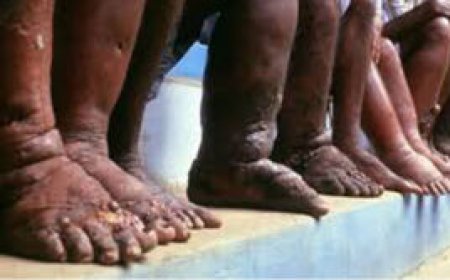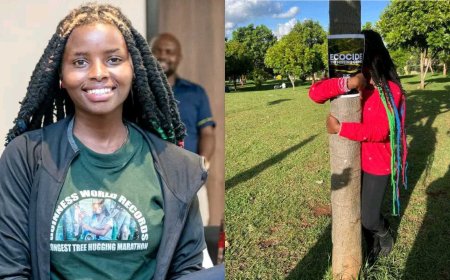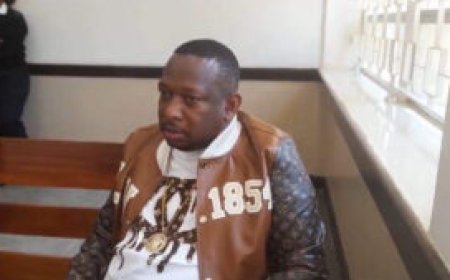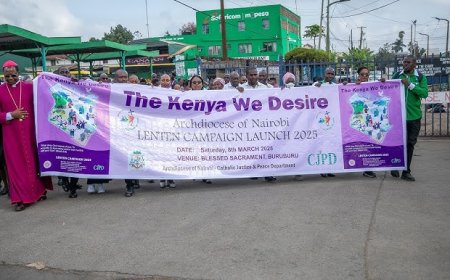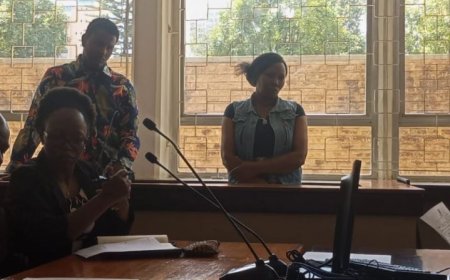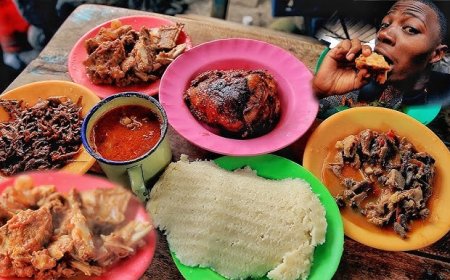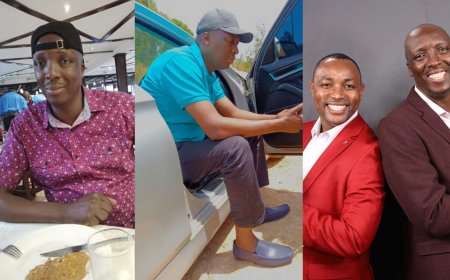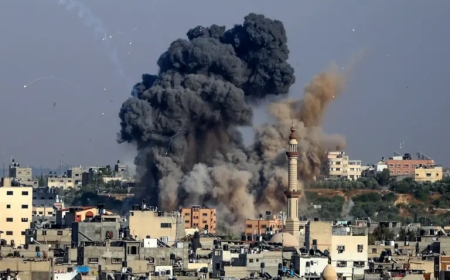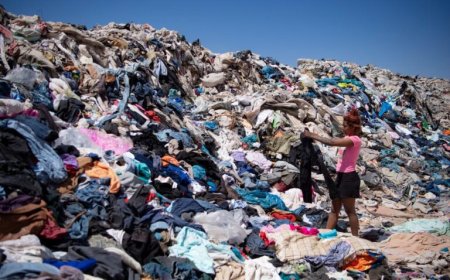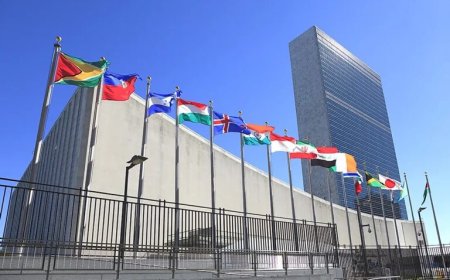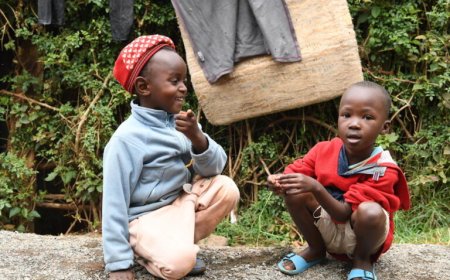Joshua Eli: Victim of Police Brutality During Nairobi Protests
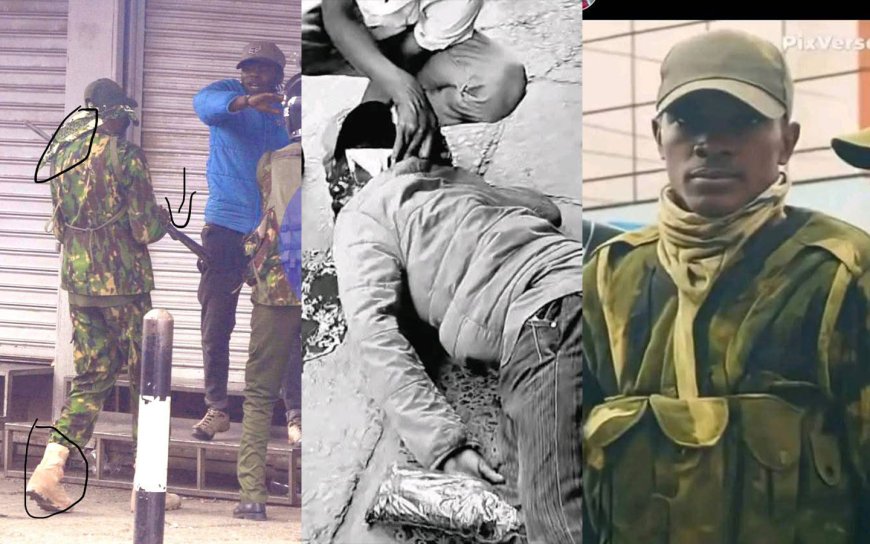
Introduction
On the bustling streets of Nairobi, protests have once again taken center stage—this time fueled by the alleged police killing of Albert Ojwang while in custody. In the midst of this chaos, a familiar face on Tom Mboya Street, Joshua Eli, a local mask vendor, found himself at the receiving end of brutal police force. Initial rumors swirled that he had died, but sources later confirmed he's alive—barely hanging on at Kenyatta National Hospital.
Who Is Joshua Eli?
Joshua Eli is not a celebrity, politician, or activist. He’s a hardworking street vendor known by many who frequent the Tom Mboya stretch. He sold face masks to earn a living—doing what he could to survive in Nairobi’s unforgiving economy. To most, he’s simply “Josh,” the guy with a ready smile and a hopeful spirit, now lying in critical condition because he happened to be in the wrong place at the wrong time.
What Sparked the Protests?
It all started with the mysterious death of Albert Ojwang while in police custody. The official narrative raised more questions than answers. The public wasn’t buying it, and soon, the streets filled with demonstrators demanding truth, justice, and reform. The incident seemed to reopen old wounds—reminders of unresolved cases and a system many believe is broken.
The Incident on Tom Mboya Street
During one of these demonstrations, police moved in to disperse protestors. Witnesses say they saw a police officer confront Joshua, who wasn’t protesting—just standing by his usual spot. Moments later, the officer allegedly struck him repeatedly with a baton, leaving him unconscious on the pavement. Videos and photos of the assault quickly made rounds online.
Initial Reports and Public Confusion
As the news spread, early reports claimed that Joshua had died on the spot. The reaction was instant—more protests, more rage. However, an unnamed source later reached out to Unreportedke Digital Media, clarifying that Joshua was still alive, although in a critical state. He had been rushed to Kenyatta National Hospital for emergency treatment.
Joshua Eli’s Current Condition
At Kenyatta National Hospital, Joshua is reportedly under intensive care. While the hospital hasn’t released an official statement, staff insiders say he sustained severe head injuries and internal bleeding. His prognosis remains uncertain, but one thing is clear—he has a long road to recovery, both physically and emotionally.
Identity of the Officer Involved
Kenyans online became impromptu investigators, analyzing every frame of the circulating footage. One photo stood out—a clear image of the officer allegedly responsible. Within hours, the officer was identified as Klinzy M Barasa. His name started trending on Twitter, and calls for his immediate arrest began to dominate the online space.
Public Reaction and Online Outrage
The digital space exploded. Hashtags like #JusticeForJoshua and #StopPoliceBrutalityKE trended for hours. Citizens shared testimonies, art, memes, and even poetry—all aimed at expressing frustration and solidarity. For many, Joshua’s beating was symbolic of a broader systemic issue that’s long been ignored.
Police Response and Official Statements
So far, the silence from official police channels has been deafening. No formal apology. No arrest. No disciplinary action—at least none that’s been made public. This lack of accountability only poured more fuel on an already raging fire. Citizens aren’t just angry—they’re exhausted.
The Role of Deputy Inspector General Eliud Lagat
Eliud Lagat, a key figure in the Albert Ojwang case, has stepped aside “to allow investigations.” But stepping aside isn’t the same as stepping down, and Kenyans are demanding more. Lagat was reportedly the complainant in Ojwang’s arrest, making him a central figure in this spiraling crisis. Protestors want more than temporary leave—they want justice.
Escalation of Protests
After the news about Joshua broke, protests intensified across Nairobi. What started as justice for Ojwang quickly transformed into a broader anti-police brutality movement. From university students to street vendors, Kenyans are united in one voice: enough is enough.
Human Rights Perspective
Several human rights organizations, including Amnesty International Kenya, have condemned the assault on Joshua and the unexplained death of Ojwang. Activists argue that this isn't an isolated case—just the latest in a long line of abuses that continue without repercussions.
Media Coverage and Suppression
Mainstream media’s coverage has been slow, even hesitant. But digital platforms are filling the gap. Independent journalists and bloggers are pushing the narrative forward, despite threats and challenges. The contrast between state-owned media and grassroots reporting is becoming more apparent by the day.
The Way Forward: Calls for Justice
The public is calling for a transparent investigation, immediate suspension of Benjamin Tanui, and reform within the National Police Service. There are also increasing demands for better civilian oversight and the implementation of long-delayed policy changes that protect citizens from such abuse.
Joshua Eli’s beating wasn’t just a random act of violence—it was a tipping point. A symptom of a deeper sickness in a system meant to protect, not harm. As he fights for his life in Kenyatta National Hospital, Kenyans are fighting for something bigger—dignity, justice, and hope. Whether anything will truly change remains to be seen, but one thing is certain: silence is no longer an option.
FAQs
1. Is Joshua Eli still alive?
Yes, according to sources, he is in critical condition and undergoing treatment at Kenyatta National Hospital.
2. Who is responsible for the attack on Joshua Eli?
A police officer identified as Benjamin Tanui is allegedly responsible, based on images and videos circulated online.
3. What led to the protests in Nairobi?
The protests began after the suspicious death of Albert Ojwang in police custody, sparking public outrage.
4. Has the government responded to Joshua’s assault?
As of now, there has been no official apology or arrest related to the incident.
5. What actions are being demanded by protestors?
Protestors want justice for Joshua, resignation of Eliud Lagat, and an end to unchecked police brutality in Kenya.
What's Your Reaction?
 Like
0
Like
0
 Dislike
0
Dislike
0
 Love
0
Love
0
 Funny
0
Funny
0
 Angry
0
Angry
0
 Sad
1
Sad
1
 Wow
0
Wow
0
